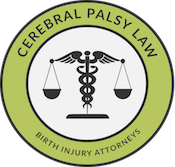Cerebral palsy can be accompanied by spasticity, which is caused by over-tight muscles. This results in stiffness and ‘jerky’ movement, which can mean reduced day-to-day function for the individual with cerebral palsy. There are several ways to treat this spasticity. The kind of treatment a doctor recommends can vary based on a number of factors (such as the severity of spasticity, the patient’s age and how well the patient has reacted to previous treatments).
For severe cases of spasticity, doctors may suggest a baclofen pump. Baclofen is a muscle relaxant that works by reducing the levels of neurotransmitter that cause the muscle stiffness. This medication can be administered orally or via a pump, but the advantage of using a pump is that it allows far lower dosages, cutting down on the severity of side effects such as sedation.
Baclofen pumps are surgically inserted into the abdomen. The pump stays in the abdomen and a catheter reaches from the pump into the patient’s cerebrospinal fluid. This catheter delivers a low dose of baclofen continuously, helping to control spasms. It is important to note that these pumps need to be refilled once every one to six months and will need to be surgically replaced once every five years.
Baclofen is a proven treatment for spastic cerebral palsy, and may be appropriate depending on certain medical factors. We are including additional information about baclofen pumps below:
- The University of Washington provides an in-depth explanation of baclofen pumps along with an 85-minute lecture on efficacy from the Spinal Cord Injury Forum.
- MedTronic provides a detailed explanation of baclofen pumps on their site, detailing pre- and post- implantation care.
The lawyers at Michigan Cerebral Palsy Attorneys have dedicated their careers to fighting for compensation for children with cerebral palsy caused by medical malpractice. We provide a free case evaluation to our clients, and never charge fees until the case is settled. We would be happy to communicate with you either by phone (888) 592-1857, live chat (by clicking the tab at the left of this page) or via our online contact page here.
Source: http://www.uptodate.com/contents/management-and-prognosis-of-cerebral-palsy
